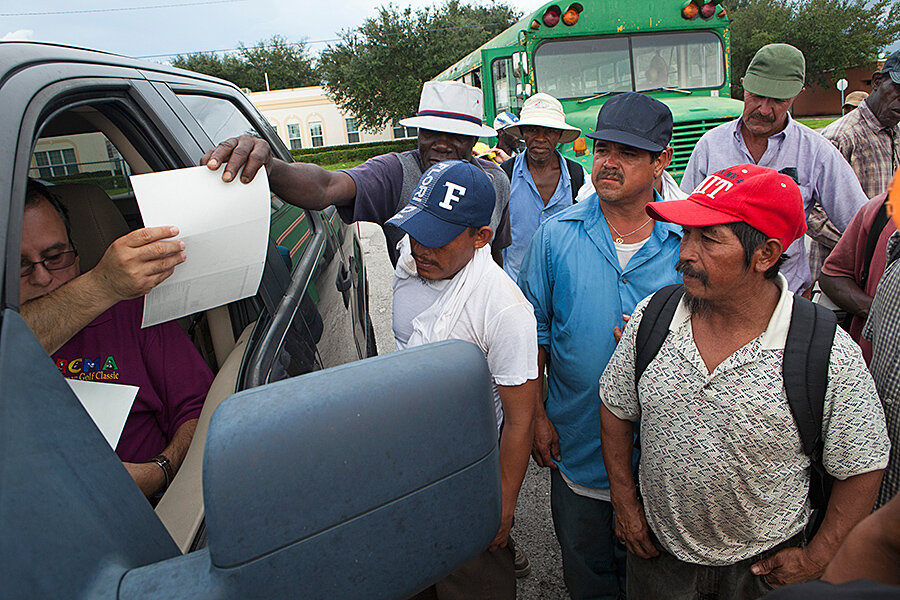Farm workers in Immokalee, Fla., have pushed corporations such as Walmart to submit to “clean labor” audits to cut down on the exploitation of largely Mexican, Haitian, and Guatemalan migrants. Their efforts have helped spur the use of “Fair Food” labels for produce that is grown and packed ethically.
“In the past three years, [the tomato fields in Immokalee] have gone from being the worst to the best” in the country, according to Susan Marquis, dean of the Pardee RAND Graduate School in Santa Monica, Calif.
Last fall, Giant and Stop & Shop, two grocery chains in New England, began carrying the label. Similar labels such as “Food Justice Certified,” which expands farm worker protections to organic products, are also beginning to crop up on supermarket shelves across the country.
Such sourcing clues tap directly into the portion of the US consumer base that has begun to turn once routine shopping decisions into moral guideposts. Labor experts see a lot of promise in using labels as a tool to spread the reforms seen in Immokalee to other agricultural centers around the US.
Read the series: Trafficking: In Florida's tomato fields, a fight for ethical farm labor grows







